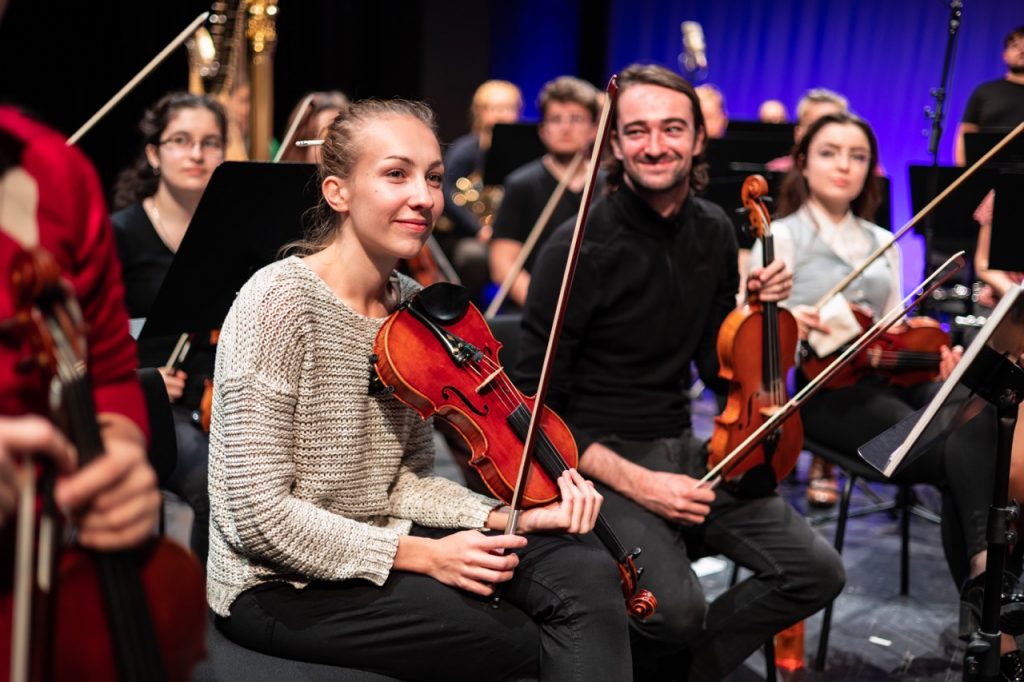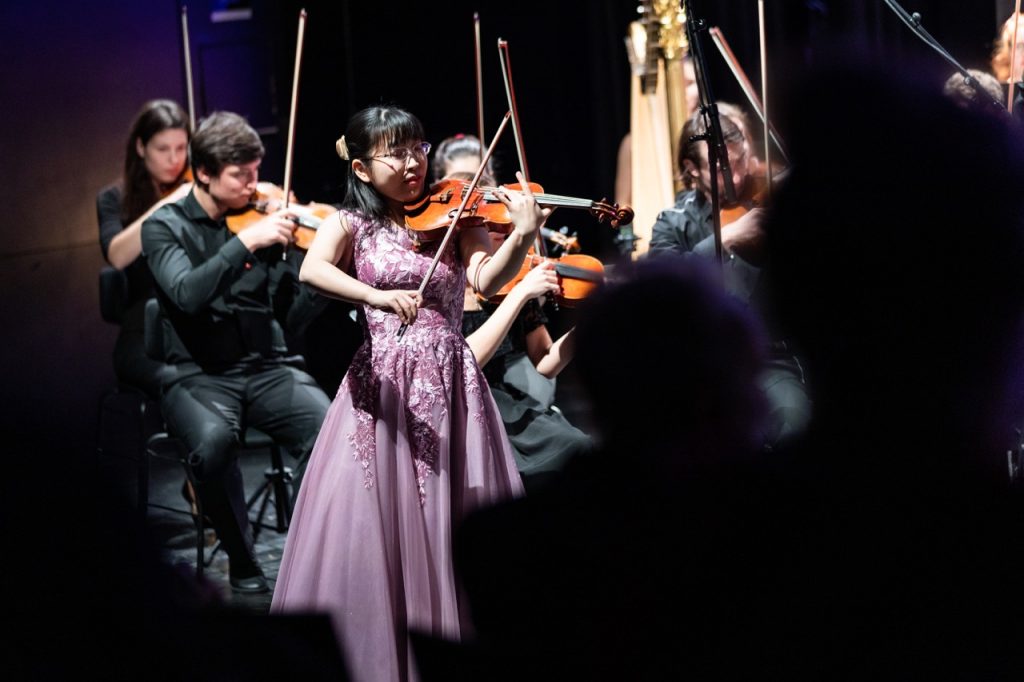String Instruments Department
The String Instruments Department is one of the founding departments of the Janáček Academy of Music and Performing Arts. Since its founding, many important personalities of Czech and international music have taught and are teaching at the academy.
From among the predecessors of current educators, we can name the violinists František Kudláček (rector emeritus of JAMU), Jiří Trávníček (founder of the Janáč Quartet), Adolf Sýkora, Bohumil Smejkal, Rudolf Šťastný, violists Jiří Hyks, Jiří Kratochvíl, Ladislav Kyselák, Karel Procházka, cellists Váša Černý, Bohuš Heran, Stanislav Apolín, Ivan Měrka, Karel Krafka, Bedřich Havlík, double bassist Rudolf Tuláček, František Hertl or Jiří Bortlíček. In the field of piano collaboration, Mrs Jiřina Kolmanová made a significant contribution to the history of the department. The youngest field of study at the department is Guitar Playing, accredited in 2004.

The education at the Department focuses on developing the talent and abilities of students for independent implementation of art projects. Of course, we strive to provide as individual approach to each student as possible with regard to the level of his or her talent, technical and artistic potential, intellectual maturity and overall artistic level. Students of the String Instruments Department can study, in addition to subjects taught at the Department (Instrument Playing, Chamber Music, Study of Piano Repertoire, History of the Instrument and its Repertory, Methodology of Instrument Playing, Study of Orchestral Parts), also courses taught at the Jazz Interpretation Department or the Organ and Early Music Department. Most courses are taught in the form of individual instruction.
Graduates of conservatories or music grammar schools can apply for studies at our Department. However, gifted students from other (non-musical) schools may also participate in the admission procedure. To be accepted to study at FoM JAMU, it is necessary to demonstrate a high level of interpretation, ability to concentrate, mental fitness for stage performance and the necessary level of general knowledge.

Graduates can find quality employment not only in our country, but also abroad as members of orchestras, chamber ensembles or teachers of primary art schools, conservatories or music colleges.